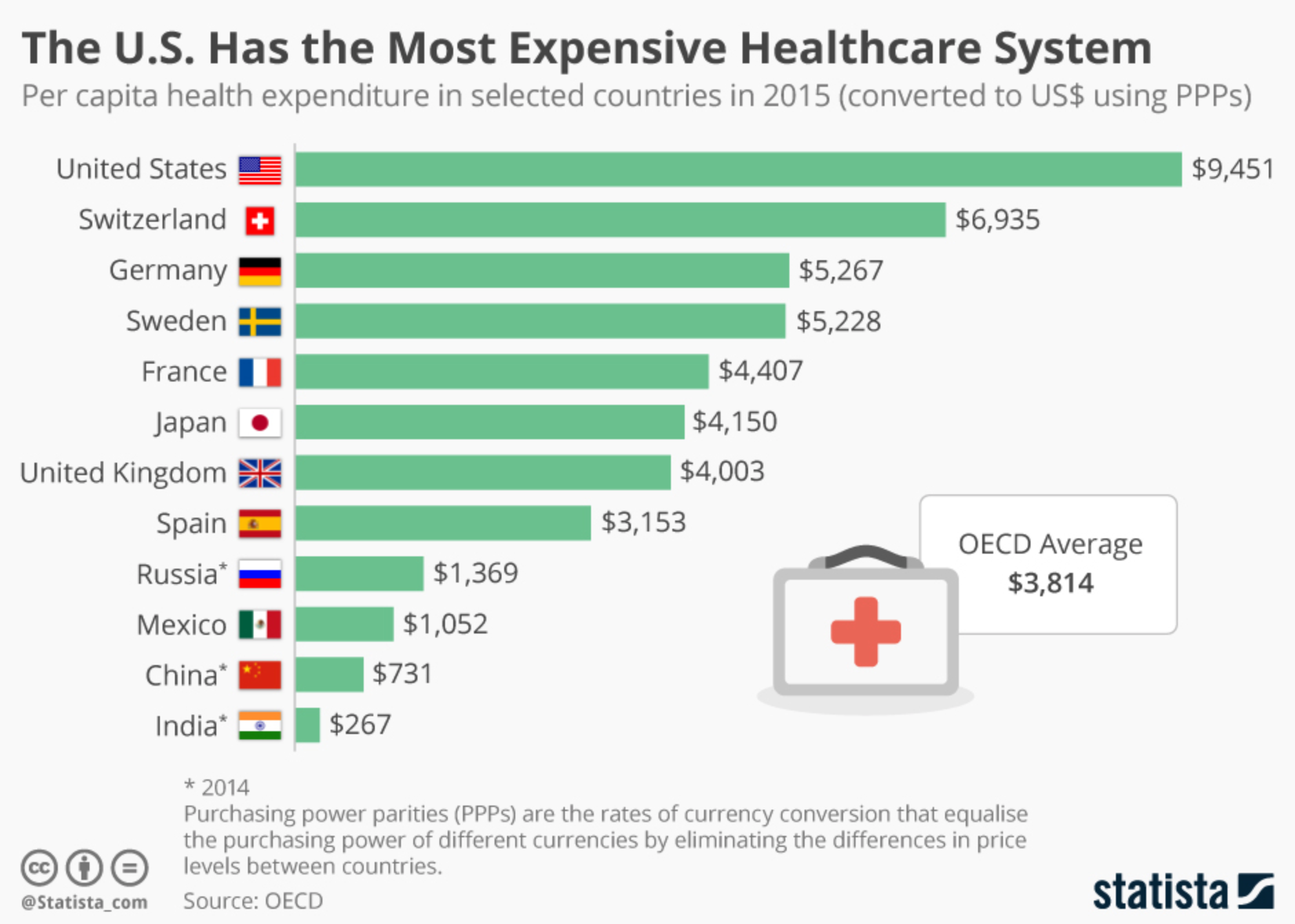These countries spend the most on healthcare. But do they get value for money?

As many as 800 million people worldwide spend up to 10% of their income on healthcare Image: REUTERS/Gleb Garanich
People in the wealthiest parts of the world are living longer than ever. Life expectancy at birth in the 35 OECD countries, for example, is now more than 80 years.

While in most wealthy countries universal health coverage gives financial protection to people against the cost of illness, many in other parts of the world still live without access to basic healthcare.
According to World Health Organization data, 800 million people are forced to spend at least 10% of their income on healthcare, meaning some families must choose between health costs and other essentials such as food and education.
The link between healthcare spending and greater longevity is clear. The OECD notes in its Health At A Glance report that life expectancy is a key indicator to understanding the overall health of a population.

In general, the more a country spends per capita on healthcare, the higher the life expectancy. The impact is most dramatic when a country is starting from a low base.

This explains why, over a 45-year period, some of the biggest investors in healthcare saw a rise in life expectancy of less than 10 years, while countries such as India, Turkey, Korea and China saw more dramatic rises in life expectancy to reach as much as 20 years.

However, whether significant total spend on healthcare results in higher life expectancy depends on the distribution of financial resources.
The US, for example, is the world’s biggest spender on healthcare as a share of GDP, but life expectancy there is significantly less than the OECD average.
The reasons for this are complex, but research has found repeatedly that the US system scores especially badly on measures of affordability, access and equality between the rich and poor.
Administrative costs are also far higher than comparable countries. Nurses in the US, for example, spend 18 hours more a week than their Canadian counterparts on administrative tasks, and clerical staff work an extra 37 hours.

Education and gender are also strong indicators of life expectancy. Men and women with a tertiary education, on average, live significantly longer than those of the same gender who are less educated; the widest gap, however, is between tertiary-educated men and their less-educated counterparts.

Aside from the money spent on healthcare, more broadly, positive socio-economic conditions such as healthy lifestyles contribute to raising life expectancy.

Don't miss any update on this topic
Create a free account and access your personalized content collection with our latest publications and analyses.
License and Republishing
World Economic Forum articles may be republished in accordance with the Creative Commons Attribution-NonCommercial-NoDerivatives 4.0 International Public License, and in accordance with our Terms of Use.
The views expressed in this article are those of the author alone and not the World Economic Forum.
Stay up to date:
Global Health
Forum Stories newsletter
Bringing you weekly curated insights and analysis on the global issues that matter.
More on Health and Healthcare SystemsSee all
Mansoor Al Mansoori and Noura Al Ghaithi
November 14, 2025







